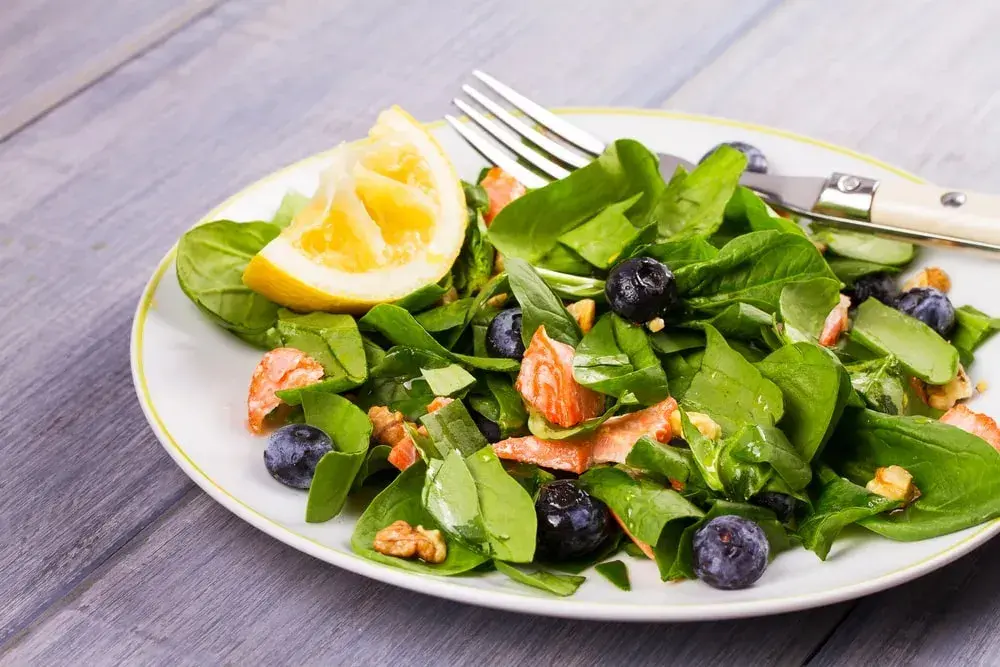
/assets/images/provider/photos/2578638.jpg)
February is all about heart health! Heart disease is the leading cause of death in America, but the good news is, risk factors for heart disease can often be reduced or prevented with lifestyle changes. Eating heart-healthy foods is an important step to overall heart health!
When it comes to heart health, the first thing many people think about is exercise. And exercise is important, whether you want to lose weight or maintain your weight. A combination of aerobic activity and strength training can help slow the heart rate, lower blood pressure, and improve blood circulation, which means that heart doesn’t have to work as hard to pump blood to the muscles. Regular exercise is also key to weight control, and maintaining a healthy weight reduces stress on the heart and lowers the risk of heart disease and stroke.
But you can’t out-exercise a bad diet. The foods you eat play a huge role in improving heart health, reducing risk factors for disease, and increasing longevity.
Foods to avoid
Do you know what foods to avoid to improve your heart health? If you said fats, you’re on the right track. But the type of fat at play is crucial. Many fats — such as those found in fish and nuts — are good for your heart.
The worst type of fat to eat is trans fats, which are created when hydrogen is added to vegetable oils to make them more solid. Trans fats are usually listed in ingredients as “partially hydrogenated oils.” These fats have been shown to increase LDL cholesterol (the bad kind), lower HDL cholesterol (the good kind), and increase the risk of heart disease, stroke, and type 2 diabetes. To reduce your exposure to trans fats, always read ingredients! Food labels can claim “0 grams of trans fats” even if they contain up to 0.5 grams of trans fat per serving. Always check for “partially hydrogenated oils” in the ingredients list. These fats are often found in baked goods and packaged foods such as cookies, cakes, crackers, pie crust, frozen pizza, and margarine.
Eating too much sugar also increases the risk of dying from heart disease — even if you aren’t overweight. Sugar can raise blood pressure, harden the arteries, and cause inflammation — all of which are bad for your heart. In fact, a high-sugar diet may play a greater role in heart disease than the consumption of saturated fat. Watch your sugar intake, especially in the form of soda and sports drinks, where it can really add up. Choose healthier beverages, such as fruit-infused water or sugar-free water enhancers. Again, read labels — sugar is hidden in many foods, even foods that may seem healthy, like yogurt.
Foods to eat
So, what should you eat to boost your heart health? Diets high in fruits and vegetables, as well as healthy fats, can reduce your risk of heart disease. But certain foods in particular provide additional heart-healthy benefits.
Make an effort to include more of these 10 foods in your diet:
- Berries, especially dark berries such as blueberries and blackberries, contain beneficial compounds known as anthocyanins, which may decrease blood pressure. A review of data from the Nurses’ Health Study found that women who ate at least three servings of berries a week were 34 percent less likely to suffer a heart attack.
- Omega-3 fatty acids, which are found in salmon and other fatty fish, may help lower the risk of irregular heartbeat and atherosclerosis, a buildup of plaque in the arteries. Try to eat fish twice a week, and take a regular fish oil supplement.
- Avocados are a good source of monounsaturated fat, which can help lower LDL cholesterol. Avocados are also a good source of potassium, which can help lower blood pressure.
- Good news — eating dark chocolate may reduce the risk of heart attack and stroke. “Dark” is the key word here, since adding milk to chocolate counteracts many of its benefits. Look for the darkest chocolate you can find, with the lowest amount of added sugar.
- It’s also safe to indulge in some red wine — just keep it to one or two glasses a day. The antioxidants in red wine may help combat free radicals, decrease arterial plaque growth, reduce inflammation, and help maintain healthy blood vessels.
- Citrus fruits, such as oranges and grapefruits, contain flavonoids that can help lower the risk of heart disease and blood clots. Unfortunately, fruit juice doesn’t count as it is typically loaded with added sugar. Choose fresh fruit whenever possible.
- Tomatoes contain an antioxidant known as lycopene, which may help lower the risk of heart attack.
- Nuts are a good source of healthy fats, as well as vitamin E, which helps lower cholesterol. Studies show that people who regularly eat nuts live longer. Choose nuts that don’t have a lot of added salt or other flavoring, which can often be high in sugar.
- Olive oil, particularly when consumed as part of a Mediterranean diet, may lower the risk of heart attack and stroke by 30 percent.
- Beans and lentils may help lower the risk of heart disease if eaten at least four times a week, and may also reduce cancer risk when used in place of animal protein.
Need help losing weight or meeting other health and wellness goals? Garcia Weight Loss and Wellness Centers offer personalized weight-loss plans with consistent, professional support to help you reach and maintain your goal weight. Contact us today for a no-cost consultation!


